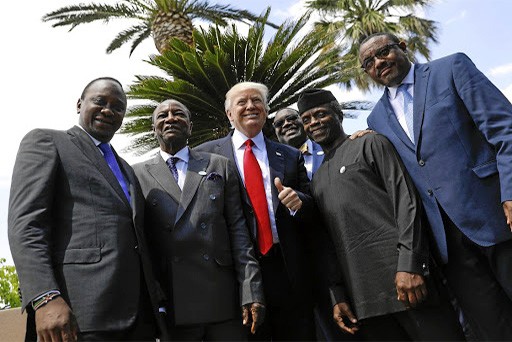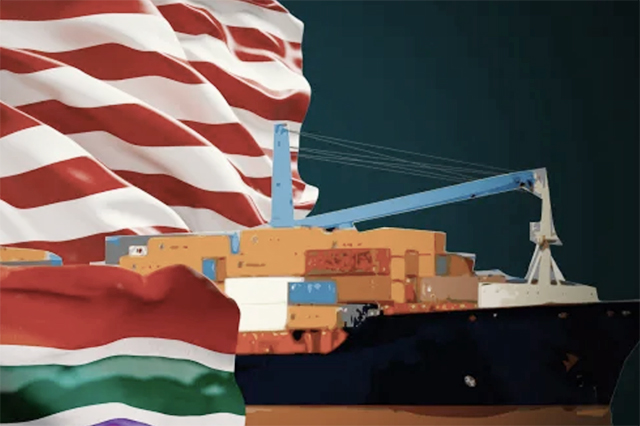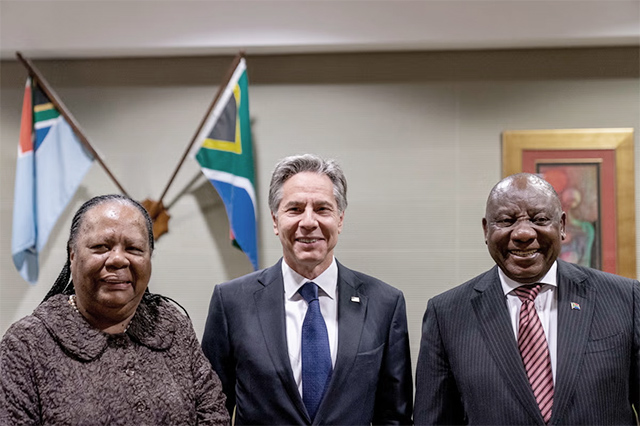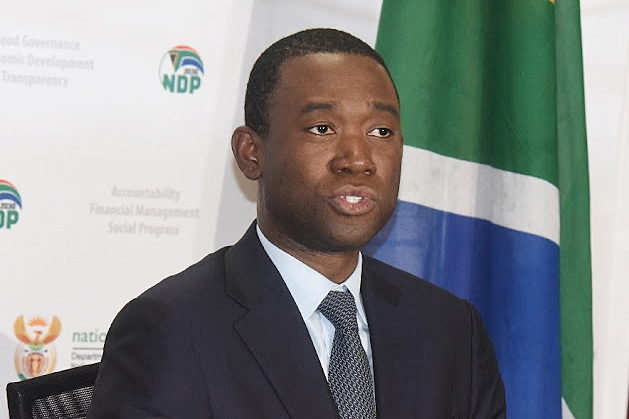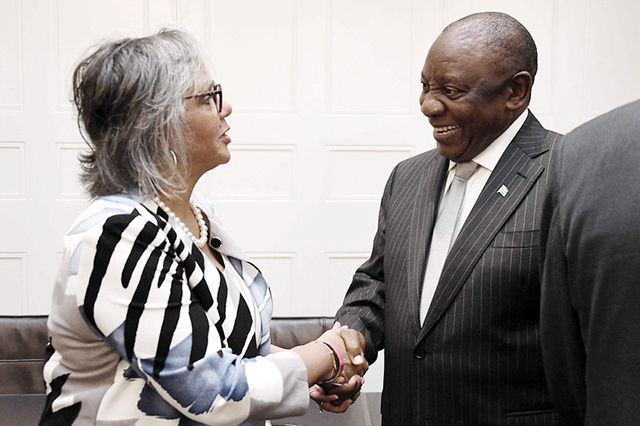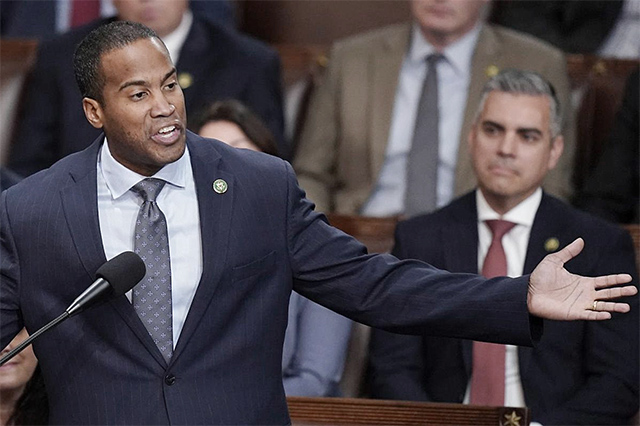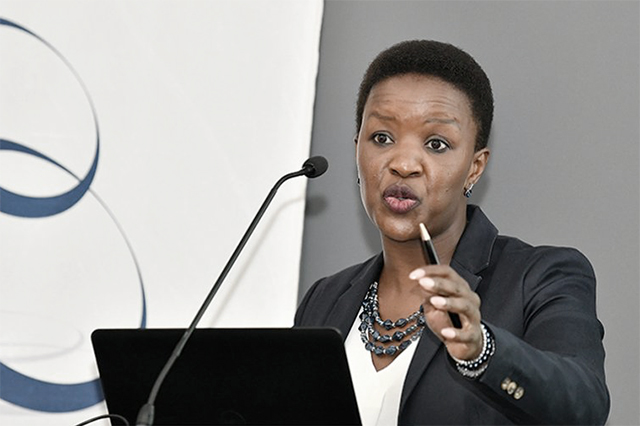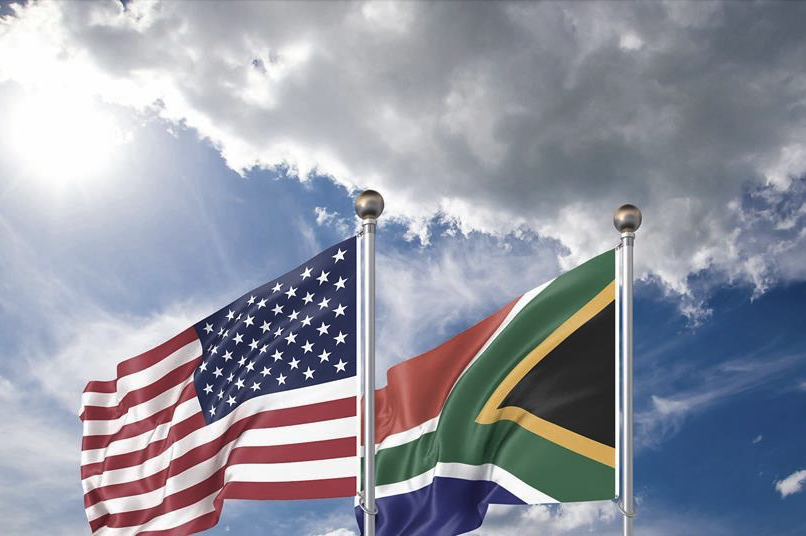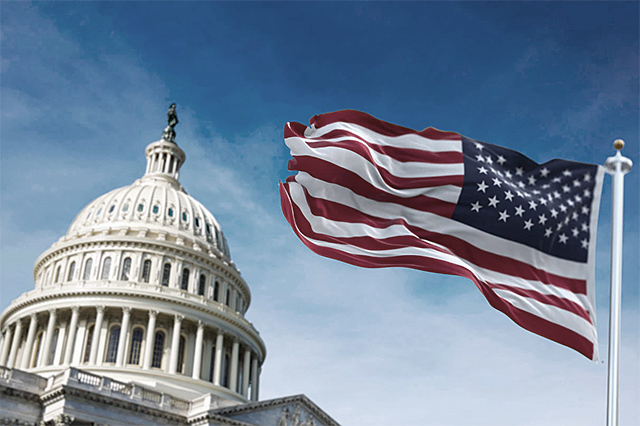US policy: Africa rising and the art of the deal
Despite the controversy and political fallout surrounding the deaths of four special operations soldiers in Niger recently, it is clear that the Trump administration still has enough room to refocus on Africa among its foreign policy goals.
Policies, personnel and priorities on Africa remain a work in progress.
There is still a possibility to orientate its policies in a way that ensures a win-win outcome — especially in the potential for enhanced trade and investment with the continent.
Washington ignores Africa at its own expense, whether in regard to the risks, or, just as importantly, the many opportunities it presents.
It’s not just the risk of other US casualties in terror hot spots or the prospect of illegal immigration, the spread of infectious diseases such as Ebola or the threat of a humanitarian crisis.
The neglect of Africa’s substantial "upside risk" – its economic growth, dynamism, and diversity — carries a high opportunity cost. The extractive industries still occupy the lion’s share of US investment and imports, but that is changing fast in a context of modest oil prices, US energy independence, and booming sectors in Africa such as consumer goods, finance, real estate, telecoms and, most importantly, infrastructure.
US President Donald Trump acknowledged the "Africa rising" theme in his address to African leaders at the UN earlier in 2017 in which he said "Africa has tremendous business potential. I have so many friends who are going to your countries to get rich."
Coming from Trump this is high praise and suggests at least the possibility of real support for US trade and investment in Africa, though probably not as robust as Barack Obama’s Power Africa initiative or Bill Clinton’s African Growth and Opportunity Act (Agoa) or George W Bush’s Millennium Challenge Corporation.
Administration officials have hinted that Trump would convene a high-level advisory panel on Africa likely to be focused on forging deeper business ties, which could be an avenue for advancing probusiness policies and initiatives. This could provide an important counterbalance to the crisis management mentality that often pervades the bureaucracy on Africa in the intelligence community, Pentagon, the state department and US Agency for International Development (USAid).
Countries having the most diplomatic and commercial success in Africa, most notably China, are focused on capturing the upside risk. It doesn’t hurt that Beijing is providing billions of dollars in subsidies each year to support Chinese trade and investment in Africa.
China’s exports to the continent exceed $100bn annually — about four times the US export level — which more than offsets its heavy import bill from African oil. There are said to be 10,000 Chinese companies operating across Africa.
While US exports to Africa are substantial, at about $22bn (which supports about 120,000 American jobs), the country still runs a trade deficit, albeit much lower now that oil prices have dropped and the US no longer relies on Nigeria and Angola for 20% of its oil imports.
The US-Africa trade deficit is about $4bn now, compared to about $80bn at peak oil prices just a few years ago.
There are growing signs that innovative "new economy" companies such as Facebook, Google and Apple are betting big on Africa.
The personnel gaps at the state department and USAid pose challenges for enhanced engagement with the continent on core US national interests spanning the commercial, security and humanitarian realms.
The administration’s efforts to streamline the state department, cut costs at USAid and cut foreign aid by nearly 30% will probably have a damping effect on US diplomatic engagement in Africa.
But the US Congress is likely to reinstate most of the aid, which tends to have strong congressional backing.
Several prominent legislators have proclaimed the administration’s budget proposal on aid and state department cuts as "dead on arrival" in Congress. Emergency assistance such as food aid and HIV/AIDS funding will probably be spared.
But economic development assistance for infrastructure, while prized by African governments and US companies, is likely to face cuts. To the extent that this undermines growth and commercial opportunities — and cedes ground to competitors, this is unfortunate, particularly at a time when Beijing is committing $60bn in subsidies.
To help US firms compete in Africa’s fast-growing frontier markets, Trump need not match China’s largesse or radically overhaul long-standing US initiatives on Africa but rather should reinvest, like a savvy businessman, in strategies and institutions that have worked, albeit imperfectly.
That means fully supporting the Millennium Challenge Corporation, the Agoa, which bolsters bilateral trade, Obama’s private sector-led Power Africa Initiative and the Overseas Private Investment Corporation, which helps to finance, insure and derisk projects in Africa.
Trump’s base is not enamoured with aid, imagining that it drains more than 20% of the federal budget, when it is less than 1%. The belief that aid just feeds corruption was articulated by Trump when he said of Obama’s multibillion-dollar Power Africa initiative that "every penny of it will be wasted".
Energy security is no longer a linchpin of US interests in Africa, meaning security and commercial engagement will probably fill the gap.
The Trump administration recently ended long-standing sanctions on Sudan in light of its counterterrorism co-operation and its willingness to end military ties with North Korea.
The Trump administration has also relaxed long-standing constraints on military sales to Nigeria, despite concerns about human rights violations, to help the Buhari administration wage war against Boko Haram.
While it can be hard to get economies of scale in smaller countries, Nigeria, SA and Kenya have compelling "emerging market" qualities while regional integration in East Africa and elsewhere is lowering trade and investment barriers across borders and making new regions more investible than ever.
While Agoa trade preferences for qualifying African countries are unlikely to be expanded further – and may get renegotiated – there may nevertheless be opportunities for bilateral and subregional trade deals, which Trump seems to favour over sprawling multilateral ones. If Agoa is renegotiated, one potential shift that would be embraced by the private sector would be a mechanism to ensure "reciprocity" in trade and investment liberalisation by African countries, not just the US.
Another idea championed by the Corporate Council on Africa, the trade industry organisation that represents US companies in Africa, is a zero tax rate on repatriated earnings.
Such a policy would be in keeping with the Trump administration’s plans to sharply lower corporate taxes to improve global competitiveness.
The Trump administration could help to even out the commercial playing field in Africa without huge new budgetary outlay or initiatives that may not play well with its base.
In so doing, it would be likely to trim or reverse the trade deficit with Africa, support US jobs, deepen relations with important allies, promote a Republican-oriented private sector-led approach to development and shore up ties to the business community — all while tapping into a still underinvested region that has grown by more than 5% for well over a decade.
- Ganda is Africa director with Greylock Capital Management and the New York Times best-selling author of I Will Always Write Back: How One Letter Changed Two Lives.


